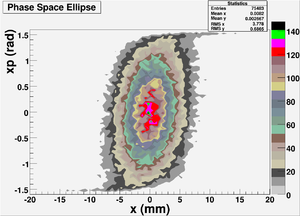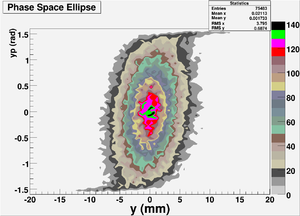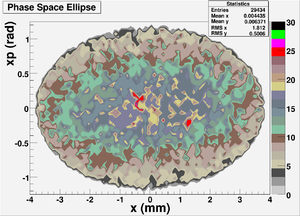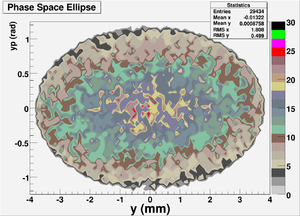Optimization of Positron Capturing
- Thickness of the Tungsten target: 1.25 mm
- Beam size at Tungsten target: Gaussian,
Optimization with ELEGANT Simulation on the Region from Gun Exit to Tungsten Target
Emittance: (Not sure yet, need to be calculated)
Average Peak
Beam Energy:
Energy Spread:
Alpha Function:
Beta Function:
RMS longitudinal Bunch Length:
GEANT4 Simulation for 2 mm W-Target
Thickness of the Tungsten target: 2 mm
Electron Beam:
Beam size at Tungsten target: Gaussian,
Beam divergence at target: 0
Beam Energy:
Energy Spread:
A volume called "detector" is placed at the of the W-target to get the information on the only of the outgoing positrons from the W-target. Followings are from "detector".
Phase Spaces of e+ Created
Phase space for positrons coming out W-target. Include 100 % of the particles
X phase space
Y phase space
Phase Spaces ellipse of 39% particles
Total positrons created are 75483, and 39 % of them will be 29438. Core 39% area of the phase space ellipse is RMS emittance, .
Long and short axis of these two ellipse are: a = 3.791; b = 1.189;



